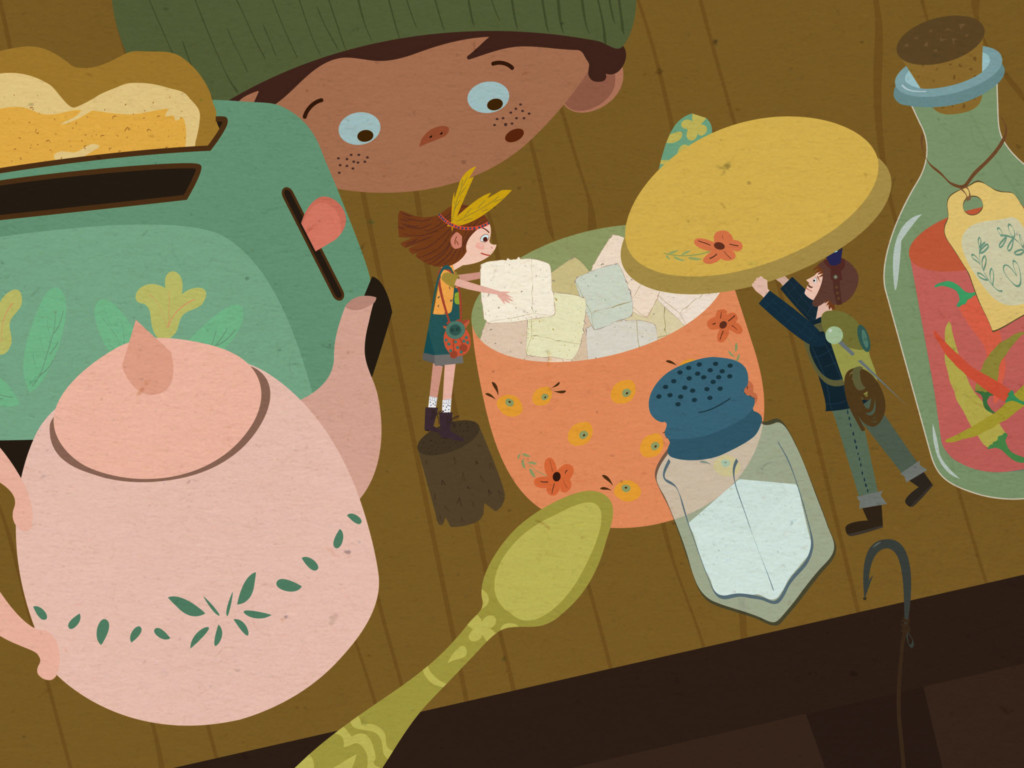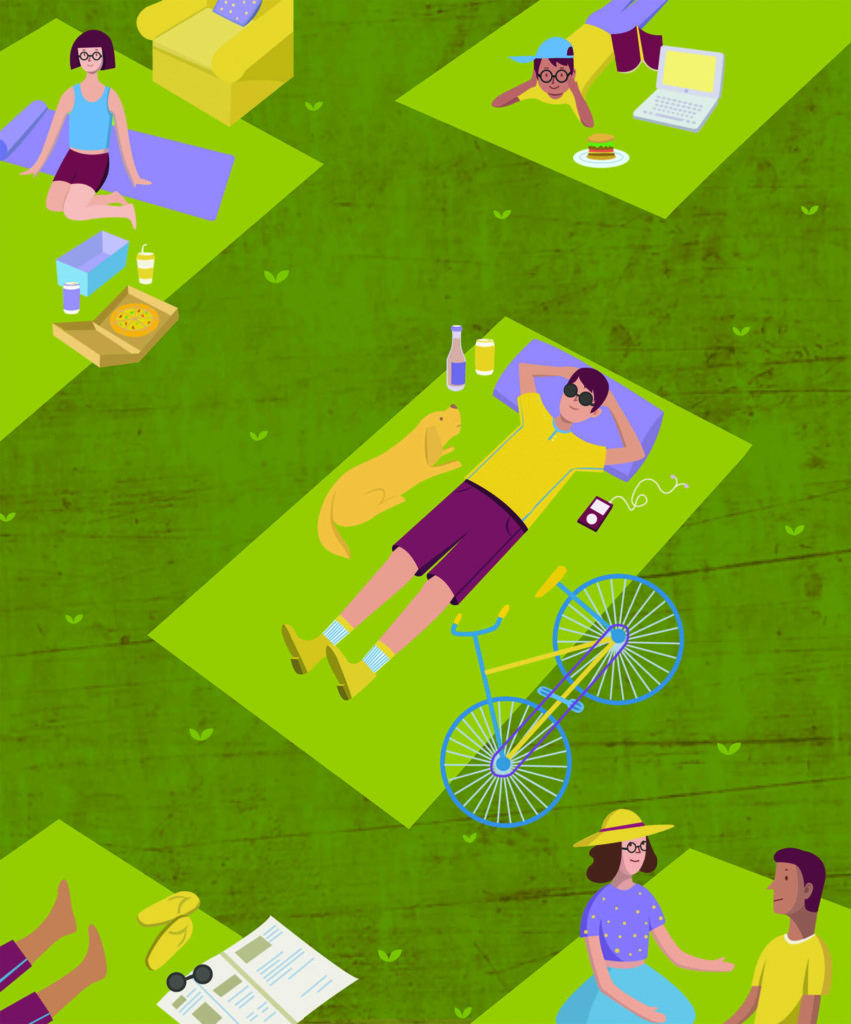Eight Tips on How to De-Stress While Juggling School, Work, and Campus Life
Whether you’re in college or high school, now that April is well underway, you’re probably already thinking about the finish line—and everything that stands between you and the next chapter of your life.
For some of you, what comes next might be summer break. For graduating seniors at any level, that might be college, grad school, or the work force.
Sound stressful? You bet.
Since 1992, April has marked the start of National Stress Awareness Month. So in honor of the occasion, here are eight tips on how to de-stress as campus life picks up before the school year ends.
Chill Out With Cats and Dogs*
There’s nothing more soothing than a cat purring or a dog showering you with love and attention. In fact, many studies show that animals help reduce stress.
But maybe you don’t have a cat or a dog eagerly waiting for you at home.
In that case, you can always visit your friends who are parents of cats, dogs, or other animals. Maybe your school offers a Therapy Fluffies program as a campus life service! Or maybe you want to visit a cat cafe or shelter instead. Whatever works for you.

*Applicable only to people without allergies
You’ve Got a Friend in Me
Speaking of friends, spending quality time with people who love you can help you de-stress and recharge. It’s in these spaces that we feel safest to laugh, cry, and vent.
So set aside some time to share what’s on your mind with your friends. Grab a meal or watch a movie together. Even a simple video chat can lift your spirits and relieve some of your burden.
After all, support networks are there for a reason: to support you.
Seriously, Take Fifteen
“But who’s got the time to take a break?” you might demand. “In THIS economy?”
Sometimes you can get so stressed out that continuing to work is unhelpful. Stuff that should be easy takes forever, or you find yourself making things worse when you try to fix them.
Frustration and anxiety build up. Suddenly, dealing with school, campus life, and your extracurriculars feels like too much.
When that happens, the best thing you can do is step all the way back. Five to fifteen minutes can help you gather your bearings.
Then you can get back to the grind.
Blow Some Bubbles
Now that we’ve established that breaks are necessary, here’s something easy to do with your fifteen minutes: blow bubbles.
Blowing bubbles with your dollar store bubble kit is a tried and true anxiety management technique. No, we’re not kidding: it actually can help you control your breathing, allowing you to relax.
If anxiety isn’t as much of an issue for you, bubbles are also just pretty to look at and fun to pop.
Furthermore, this activity is pretty low effort. Unlike the previous suggestions in this post, you don’t have to go outside to blow bubbles—unless you’re making a trip to the store to buy what you need.
Anyway, that’s an easy problem to solve. Just stock up on bubble-blowing materials beforehand. Future you will definitely appreciate it!

To the Comfort Zone
While doing things outside of your comfort zone has its merits, you still need to recognize your own limits. When you’re stressed out, returning to your comfort zone can give you a moment to recoup.
Of course, the comfort zone isn’t only a theoretical concept. It can also be a physical space, like your couch or your warm, pillow-laden bed.
So surround yourself with what comforts you, like video games, ambient music playlists, your favorite foods, or a blanket to swaddle yourself in. You can even buy yourself a tortilla blanket, if a normal blanket isn’t enough.

In the end, the most important part is that you rest up before tackling what life has in store for you.
An Apple a Day Keeps the Doctor Away
You’re human, not a machine. And humans need to do human things, like sleeping, staying hydrated, and eating more than Cup Ramen.
Proper meal prep takes time and money, but if you can, don’t cut corners on your nutrition. Low blood sugar levels can elevate the stress from school, work, and campus life.
If you’re living on your own, allocate at least one day each weekend for groceries and meal prep. Plan ahead! Find cheap and easy recipes. Cook one gigantic pot of something filling to tide you over for half of the week.
For fancier dishes, try dividing the recipe into multiple parts. Is there anything you can get done a day or two beforehand, like chopping vegetables into smaller bits?
Time management can be a pain, but it can also make your life less painful. Using your free time to free up your future schedule will help you out when you’re truly busy.

Sometimes, Living Under a Rock is Better
In the digital age, the constant influx of information can be overwhelming. So why not unplug for a while?
Again, you’re not a machine, and you’re not a cyborg whose consciousness has been uploaded onto a server. On your worst days, you might not have enough brain processing power to digest the latest news, controversies, or trends. Constantly keeping up might even be your main cause of stress.
For once, don’t worry about missing out. Prioritize yourself and your own mental health. Wait until your head is clear, and then dive back into the fray.


Last but not Least, Get Help
No, we aren’t talking about Thor and Loki’s “Get Help” schtick in Marvel’s Thor: Ragnarok.
Asking for help can be the hardest thing that you ever do—but knowing where to go and who to ask can certainly make it easier.
At Academy of Art University, we offer plenty of academic resources for students with different needs. Our Academy Resource Center offers regular workshops, tutoring sessions, and academic coaching to help students develop skills needed in class and beyond.
Meanwhile, our Veterans Resource Center is designed to support our community of military students.
Of course, that’s not all. Find out more about health resources at the Academy, or check out this useful list of Academy services to get started.
And as always, if you’re curious about Academy campus life in general, requesting information can also give you the answers to your many questions.








